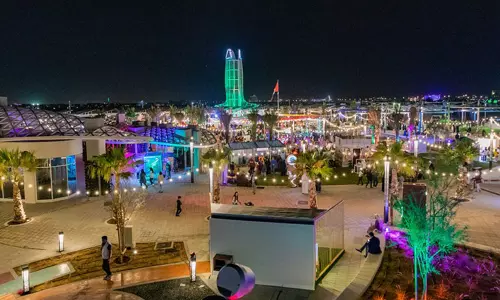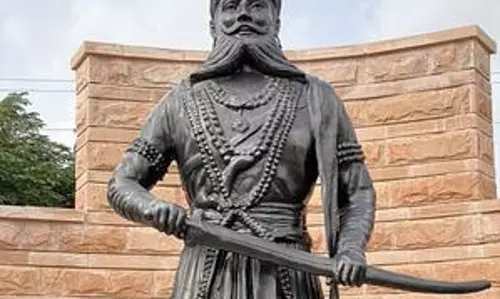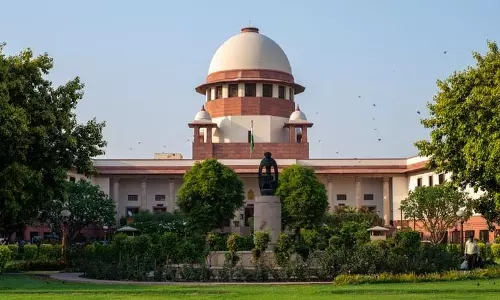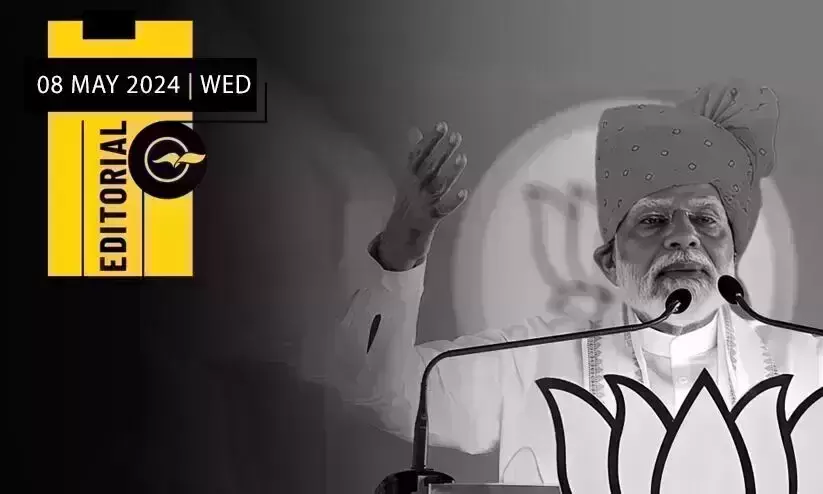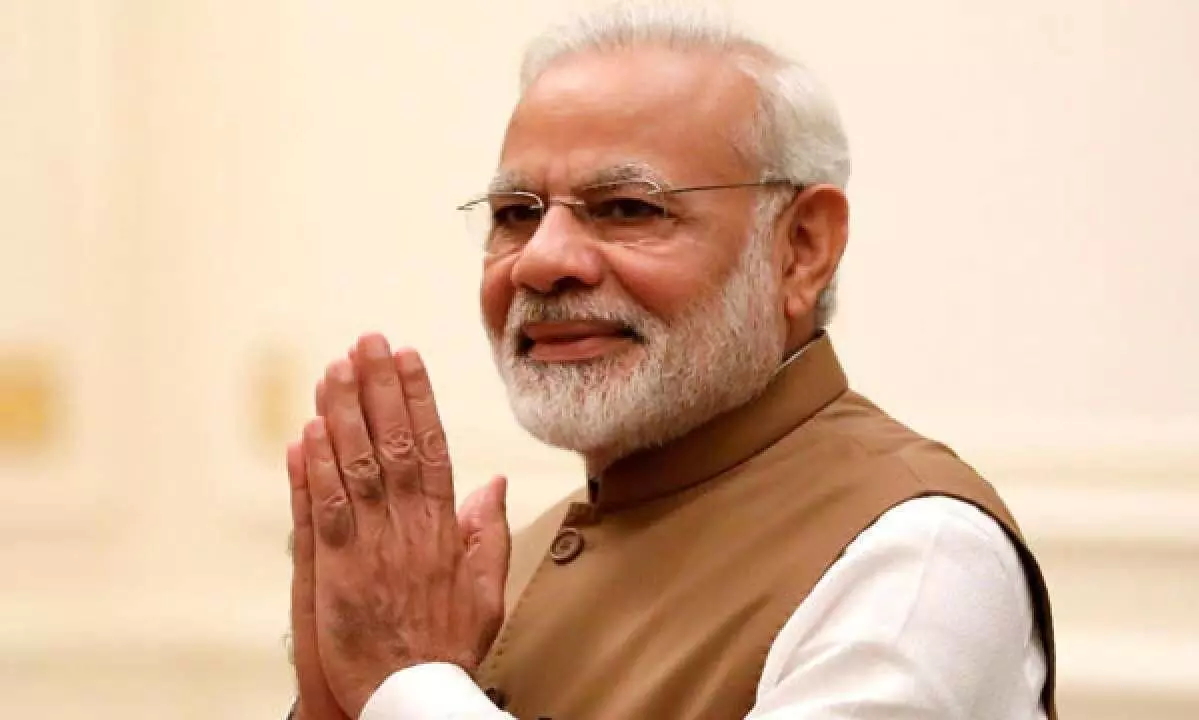
BBC docu says Narendra Modi had active hands in 2002 Gujarat riots
text_fieldsLondon: On the 2002 Gujarat riots and the violence, including rape, murder, arson etc that happened then, the Supreme Court has given a clean chit to Narendra Modi, Prime Minister of India and the then Chief Minister Gujarat. Now, a BBC documentary has come up with a UK government report on the incidents, which upholds all the allegations raised against Modi, The Wire reports.
The documentary, titled ‘India: The Modi Question’, carries in the first part the mentioned government report marked as “restricted”, thus not been published or revealed before. It explains Modi’s role in the riots that erupted in Gujarat during February and March of 2002, killing hundreds of Muslims and Hindus.
However, the government on Thursday dismissed the BBC series on Prime Minister Narendra Modi and the 2002 riots as a "propaganda piece designed to push a discredited narrative" and stopped short of giving a full rejoinder saying it shouldn't be "dignified" with a response.
The retort by foreign ministry spokesperson Arindam Bagchi.also said, "If anything, this film or documentary is a reflection on the agency and individuals that are peddling this narrative again. It makes us wonder about the purpose of this exercise and the agenda behind it and frankly we do not wish to dignify such efforts". he stressed.
The riots started after a train burning incident at Godhra on February 27, 2002, where 59 Kar Sevaks died. Violence broke out after that, and during the same, 790 Muslims and 254 Hindus were killed, 223 more people were reported missing, and another 2,500 were injured, Parliament was told in 2005.
The first part, aired on Tuesday, showed a series of images of pages from the report, and it suggested that Modi was directly responsible for the riots, which was a systematic campaign of violence with the intention of ethnic cleansing, the report stated.
The documentary stated that the inquiry was set up by the UK government after hearing about the Gujarat incident. Former foreign secretary of the UK, Jack Straw (2001-2006), said on camera that because of the relations with India, the country was very important to them. They sent a team to Gujarat, found out what happened and prepared a thorough report, he said.
The report submitted before the UK government then stated that the extent of the violence was far greater than what was reported. There was widespread and systematic rape of Muslim women, and the violence was politically motivated. The aim was to eliminate Muslims from Hindu areas, and Modi had a clear hand in it, the documentary stated.
A then British diplomat, who wished to be anonymous, said that a minimum of 2000 people could have been killed in the violence, and the majority were Muslims. According to him, it was a deliberate, politically driven, violent campaign to eliminate the Muslim community, i.e. a pogrom.
The diplomat said that the violence was strategically organised by the extremist Hindu nationalist group, the VHP (Vishwa Hindu Parishad), which is an affiliate of RSS. He swears that the terror group could not have inflicted such damage without the state’s connivance. The state created a climate of impunity for violence to take the stage.
British Foreign Secretary Straw told BBC that the then Gujarat CM Modi played a fair role in pulling back police and encouraging Hindu terrorists.
Though the UK kept the report in hoarding, they imposed a diplomatic boycott on Modi for his claimed failure to contain the riots or stop the bloodshed. However, the boycott ended in 2012.
However, BBC states that by 2012, the European Union initiated an inquiry on the gruesome episode in Gujarat and found that state ministers actively took part in the violence and senior police officers were instructed not to intervene.
BBC’s Jill McGivering interviewed Modi on the violence, and she relates the experience that Modi wasn’t very friendly to the media. She felt him as a very charismatic, powerful and menacing figure.
When asked about Gujarat being plunged into repeated violence and turmoil after the break of riots, he said that she needed to correct her information and Gujarat is very peaceful.
When he was asked about the alleged mishandling of the law and order situation in the state, he said that that information was also fake and he did not agree with BBC’s analysis. He also warned that the British must not preach to Indians human rights, McGivering said.
When asked if there was anything Modi wanted to do differently on the riot episode, he said that he would have handled the media differently.
“One area where I could have done things differently is — how to handle media,” she quoted Modi.
The UK inquiry concluded that when Modi remains in power, there will not be any reconciliation. The statement does have a frightening tone.
In June 2022, upholding the clean chit granted to Modi and rejecting the murdered ex-MP Ehsan Jafri’s wife, Zakia Jafri’s plea challenging the same, the Supreme Court ruled that the charges of larger criminal conspiracy does not stand but “collapsed like a house of cards”.





